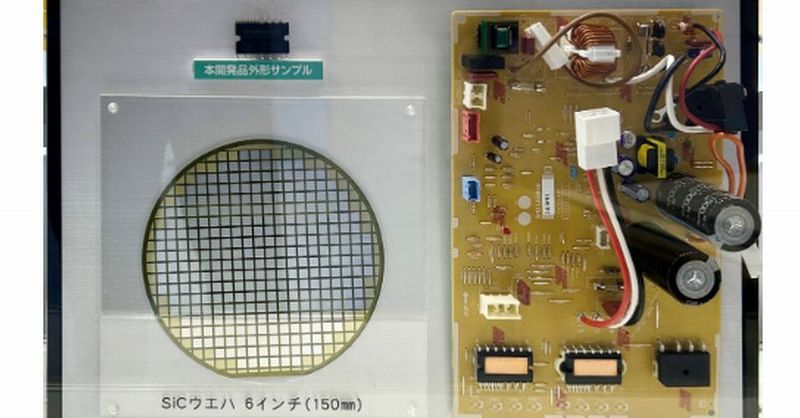Slash Your Energy Bill: New SiC-Based IPMs Revolutionize AC Efficiency
The soaring cost of energy has homeowners and businesses alike searching for ways to reduce their consumption. One of the biggest energy drains in many homes and commercial spaces? Air conditioning. But a groundbreaking new technology promises significant improvements: Silicon Carbide (SiC)-based Intelligent Power Modules (IPMs). These innovative devices are poised to revolutionize AC efficiency and dramatically lower energy bills.
What are SiC-Based IPMs?
Traditional air conditioners rely on Insulated Gate Bipolar Transistors (IGBTs) for power conversion. While functional, IGBTs suffer from significant energy losses as heat. SiC-based IPMs, however, offer a superior solution. SiC semiconductors exhibit superior characteristics, including:
- Higher switching frequency: This allows for smaller, lighter, and more efficient power converters.
- Lower on-resistance: Less energy is lost as heat, leading to significant energy savings.
- Wider bandgap: SiC can operate at higher temperatures and voltages than IGBTs, further enhancing efficiency and durability.
- Improved power density: More power can be packed into a smaller space, resulting in more compact AC units.
These advantages translate directly into lower energy consumption and reduced operational costs for air conditioning systems.
How SiC-Based IPMs Reduce AC Energy Use
The improved efficiency of SiC-based IPMs leads to several tangible benefits:
- Lower electricity bills: By reducing energy loss, these IPMs directly translate to a smaller electricity bill.
- Reduced carbon footprint: Lower energy consumption means a smaller environmental impact.
- Smaller and lighter AC units: The higher power density allows for more compact and lightweight AC systems.
- Enhanced reliability and lifespan: The superior performance of SiC translates to a longer lifespan for your AC unit.
The Future of AC Efficiency: More Than Just Energy Savings
The adoption of SiC-based IPMs represents a significant leap forward in air conditioning technology. This isn't just about saving money; it's about creating a more sustainable future. As research and development continue, we can expect even further improvements in efficiency and cost-effectiveness.
Industry Impact and Future Trends
The implications extend beyond individual consumers. Large-scale adoption of SiC-based IPMs will have a profound impact on the HVAC industry, driving innovation and competition. We can expect:
- Increased demand for SiC materials and manufacturing capabilities.
- Development of more sophisticated and integrated AC control systems.
- Further miniaturization and improved performance of AC units.
- New opportunities for energy-efficient building design and management.
Making the Switch: Considering SiC-Based AC Systems
While SiC-based IPMs are relatively new, their benefits are undeniable. When considering a new air conditioning system, inquiring about the use of SiC technology is a worthwhile investment in long-term energy savings and environmental responsibility. Consult with HVAC professionals to learn more about the availability and suitability of these advanced systems for your specific needs. They can help you assess the potential return on investment and choose the most energy-efficient option for your home or business.
Keywords: SiC-based IPM, Intelligent Power Module, Silicon Carbide, AC efficiency, energy savings, HVAC, air conditioning, energy-efficient, reduce energy consumption, sustainable technology, lower electricity bill, carbon footprint, power density, switching frequency, on-resistance, IGBT
(Note: This article includes keywords naturally within the text. Internal and external links would be added based on the specific website and its existing content. The call to action is subtle, encouraging readers to consult with professionals.)
